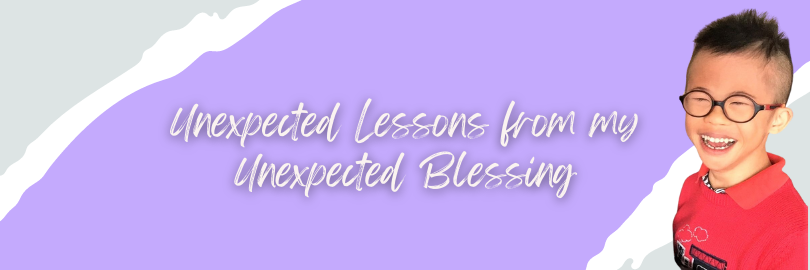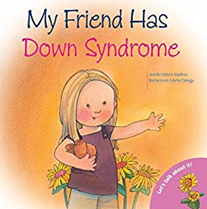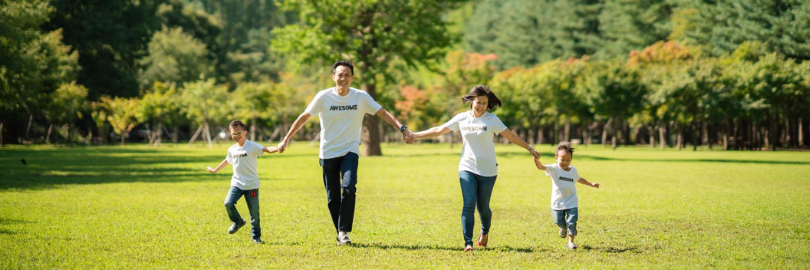
Unexpected Lessons from my Unexpected Blessing
11 March 2022
My husband, Eugene, and I have two very different and lovely boys. Our younger son, Ean, is a very active, typical 7-year-old. Joshua, our first-born, is 14 years old. He has Down Syndrome and exhibits some forms of Autism. While having a child with special needs was an unexpected road we have taken, this journey with Joshua has taught us many important lessons on life, love and parenting.
Initial Challenges
I struggled early on in my journey with Joshua. Taking care of Joshua brought about much stress and anger. I felt that I bore the burden of looking after Joshua all by myself, and I remember I always got angry with the people around me, especially family members who were trying to help.
Finally, a conversation with my husband one day made me realize how my stress had affected my family members. It opened my eyes to see how blessed I was with a father-in-law who constantly read up on all conditions that affected Joshua and worked with him on physiotherapy exercises; a prayerful mother-in-law, and a steadfast husband who always saw the good in all situations. I decided to embrace the realities of my situation and worked towards protecting my family by ensuring we have a good relationship within the household, trusting that all of us are doing our best for Joshua. I realized that a safe and warm family environment is the best thing we can give to Joshua while we continue to be hopeful and persevere through this journey, even if at times, the difficulties might seem impossible to overcome.
Uniquely and Wonderfully Made
Like many parents, we had many plans and dreams for Joshua. However, Joshua’s conditions left many of these expectations unfulfilled, and us, disappointed. We initially struggled because of the expectations that children should be performing certain tasks (e.g. walking, running, reading etc) once they hit a certain age, and were affected by the comments of other parents such as “Oh, my son is able to do this .. ” or “so and so is the same age as you and he is able to do it”.
One such example was with walking. By the time Joshua was home with us on a long-term basis, he was already 1, and had spent most of his first year lying down in the hospital. We were worried if he would eventually be able to walk. The physiotherapist advised us that he would walk once his muscles were ready, and that we should just continue the exercises she had recommended. Joshua would eventually begin walking when he was 3, and today, he runs like an ostrich!
Joshua also took a long time to learn how to eat. We had to learn from an occupational therapist on how to activate his oral muscles before his mealtimes to reduce the rejection of food. Everything which seemed to be second nature to most kids, needed to be broken down into many small little steps for him. Yet, today, he eats independently, and enjoys eating dim sum at Chinese restaurants!
As Eugene and I walked this journey with Joshua, we learnt how to moderate our expectations with our children. It was not that we disregarded setting goals altogether, but we learnt that we had to be realistic about them, and focused on what our child is capable of, rather than impose unnecessary expectations on him. Each child is unique with strengths and weaknesses and learns differently, at different pace.
For example, Ean, our second child, achieved developmental milestones such as walking with limited difficulties. While Joshua had some delays with this, we also saw his many other talents, such as his excellent memory. At just 3, he was able to pronounce words with more than two syllables. Till today, Joshua would take a longer time to learn certain things, but we know he will get there in God’s time. Sometimes he surprises us with what he is capable of too!
Overcoming the Stares and Comments
One thing that used to challenge me was the stares and comments from individuals who may not be as well-informed about the special needs community.
I recall Joshua’s first outing to the Botanic Gardens – it felt as if we received the greatest number of stares in our entire lives! Because of his medical issues, he had to don a respiratory mask and breathing machine, which was an unfamiliar sight for most of the other visitors. Once, we even encountered a grandmother who chided her grandson saying: “I told you so many times not to sit so close to the TV, or you will end up wearing glasses like him”, when she saw Joshua’s spectacles.


There was another incident where a child who met Joshua at a swimming pool and passed a nasty comment that he looked “weird”. After I discovered where his family stayed, I bought a few copies of the book “My Friend has Down Syndrome” and left one copy at their doorstep together with a note. My hope was to encourage this boy’s parents to read the book to their children, to raise awareness that everyone is unique in their own way. Soon after, I was moved when this boy’s father appeared at our door, apologized on his son’s behalf, and shared that he would take steps to help his children learn about Down Syndrome.
Experiences like this made us feel a wide range of emotions, from embarrassment to anger, but Eugene and I would always remind ourselves that we are doing our part to create awareness to the public about diversity and acceptance. The first step to acceptance always begins with us parents. We parents need to be the first to accept our own children if we want society to accept them. If a child does not feel accepted as they are by their own loved ones, how can they confidently relate to others later in life?
While it was indeed a challenge to accept the reality of Joshua’s condition at the start, it has gotten better over the years, after I had made peace with my own emotions, and experienced many joyous occasions with Joshua. I am now able to freely share with people about Joshua’s condition which I previously would not, for fear of how people would judge him. I am also grateful for the many people who have joined us on this journey – family members, other parents of children with special needs, teachers, volunteers, doctors, nurses, therapists, volunteers, people keeping us in prayers and even strangers who give us an assuring smile in the public! Acknowledging our vulnerabilities as parents and being opened to receive help from others expands our ability to give more to Joshua. This goes a long way to build a family where love thrives, an environment that our children need as they develop and flourish as people to be respected.

Contributor:
Contributed by Caslin Lee.
Caslin and Eugene are parents to 7-year-old Ean, and 14-year-old Joshua. Despite a challenging opening chapter to life, Joshua and his family have emerged from these experiences more united and resilient, and parents Caslin and Eugene are determined to continue building a loving and flourishing home for their two lovely boys.

